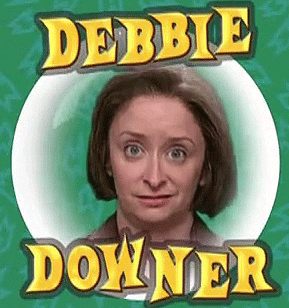In the online world, negativity produces clicks. Is bucking that trend worth the cost? Does positive come at a price?
I was checking my email Sunday morning when I found a message from a popular Christian blogger. His very influential blog and podcast feature some of the leading thinkers in church growth and the business world. I’ve read all his books, taken his leadership courses, and recommended his material to friends. All this to say, I sincerely appreciate what this man does for the church and leaders.
The email began with the subject line, “Practical tips to creating an amazing first-time-guest experience.” The title drew me in immediately. We’re going to be focusing on hospitality at our church this summer, and his article sounded like something I’d want to share with our team to get them jazzed about welcoming new guests. So, I gave it a click, fully intending to share it with others.
Then I read the title of the post on his blog:
“How to Lose A First Time Guest in 10 Minutes or Less”

Maybe it was the timing. I was loaded up with caffeine and getting pepped up for morning worship. The blog article title sucked the fun out of the moment, and I found myself firing off a quick response. I came right out and asked:
Why the negativity? Does it attract more clicks? Your email made the article sound positive and encouraging but the title of the article feels like failure.
I love you, man, but pick a lane.
Ok, “pick a lane” may have been a bit much. I see that now.
To his credit, he replied! Honestly, I expected him to (or someone on his staff). I’ve always found this gentleman accessible and friendly. I’ve followed him from early on, we’ve run into each other at a few conferences, and he always manages to remember my name, even if he has trouble spelling it right (I have problems with his name too). A day later, he responded with this:
Hey Brett, Thanks for the feedback, and I’m sorry for the confusion. In short, yes. Over the years my team and I have found that negative headlines almost always outperform positive headlines. Even if it’s the same exact content inside of the article.
In this case, the article did hopefully give the reader some practical tips on helping improve their first-time guest experience by way of showing them what not to do.
I hope that makes sense. Once again, sorry you felt this way.

So yeah, negativity gets attention. I figured as much, and he admits as much. A negative headline gets more clicks, clicks are more readers, more readers are more ad revenue, more ad revenue is more . . . well, it’s more. Honestly, I wouldn’t know. I’ve currently made a total of seventeen cents in Google ad revenue this month on this blog.
But honestly, I’d do it for free.
My frustration is, I’d love to see my own blog take off. I’d love to know that I have a resource that others find helpful. I put a lot of effort into my content (sporadic as it is), and I’m overjoyed every time there’s a click.
But if I’ve got to go negative to get them, forget it!
Jesus said, “Blessed are the poor in spirit,” not “Here are nine promises that suck (the seventh will surprise you).“ Paul wrote, “Love is patient, love is kind,” not, “Here’s how to get more time to yourself by hating everyone around you!”
Does the Negativity Really Pay Off?
Maybe I’m just far too aware of my own propensity toward negativity. I avoid sharing negative articles online, and I’m certainly not going to allow myself to be known for writing them. And I have to wonder, maybe early on, he needed to grab attention with the negative stuff, but is that still true? Could it be that this person who is influential and counted as a positive motivator by many no longer needs to rely on the negative to get clicks?
And, on top of that, I would ask if it’s worth it? Is the ad revenue really worth playing off your readers’ pull toward the negative?
Seriously, I’m asking . . . I’m trying to keep the lights on here with seventeen cents this month!
Does Positive Come at a Price?
Ironically, one of this podcast host’s frequent guests, Jon Acuff, has a whole book about the lure of negativity and how to convince yourself to focus on the positive. Jon writes, “Overthinking tends to lean toward the negative. Left to its own devices, it will naturally gravitate toward things you don’t want to dwell on (page 21).”
If I’ve recognized the danger of negativity in myself, why would I want to feed others on it?
Oh, right . . . the clicks. I remember.
There may not be a more effective way, but there’s got to be a better way. Maybe lifting up Christ comes at the cost of clicks. And perhaps that’s more important than website hits, referrals, or ad revenue.
Anyway, that’s my seventeen cents’ worth.
